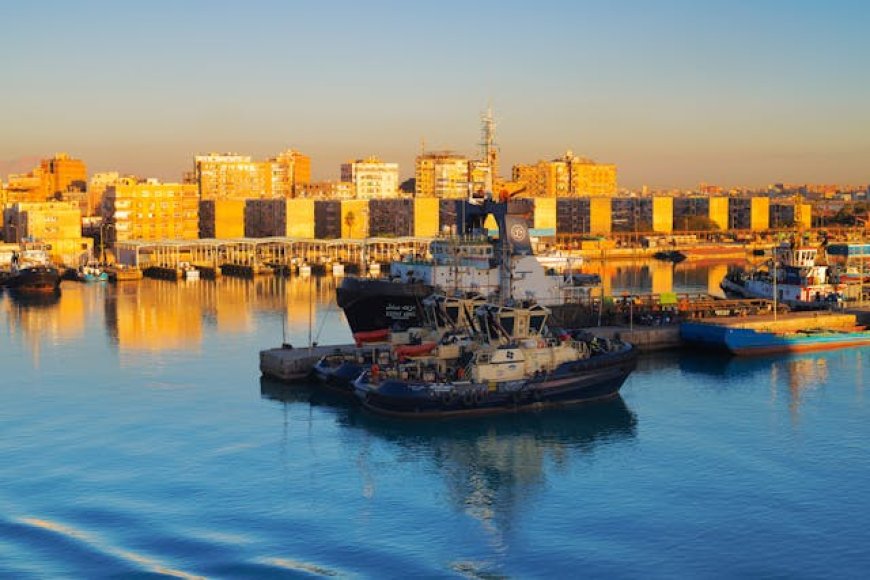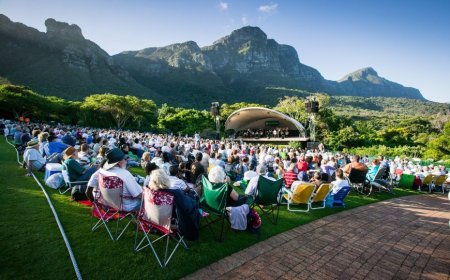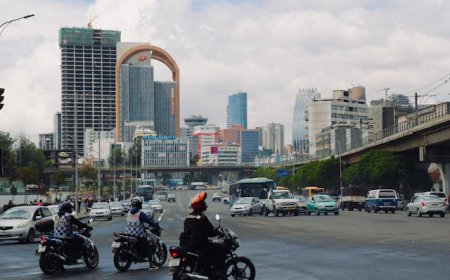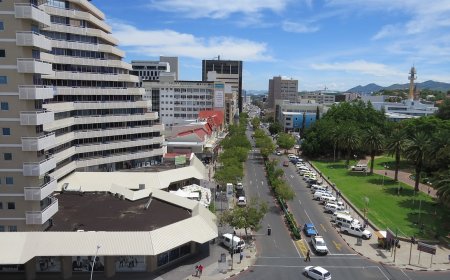Synopsis
Before we dive into this episode, we want to say a huge thank you to our listeners who have been tuning in for the past year. This episode concludes The Africa Hour’s first season on digitalization on the African continent. It was a wonderful experience and APRI hopes to be back soon with a new season and fresh, informative, and critical policy content.
Egypt is keen on foreign capital, and is creating special economic zones to attract investors. One such zone is along the man-made Suez Canal - one of the most important maritime trade routes globally. Even the tiniest of problems in the Canal can significantly derail operation for the thousands of shipping vessels that pass through the channel every year. Authorities are leveraging this crucial corridor, and in 2015, created a special trade zone around the Canal to boost local production of automotives, chemicals, construction materials and so on. As the zone slowly develops a decade after though, can authorities use technology to pull investors in faster? And can the zone become a green hydrogen production hub to help clean up the very-polluting shipping sector?
Listen
Guests
Mohamed Ibrahim Hafez is a prolific expert and advisor in Special Economic Zones (SEZs) and Foreign Direct Investment (FDI). He has advised countries in the Middle East and Africa - including Egypt - on strategies and policies to boost investment and elevate SEZ ecosystems. Presently, he is a researcher at the Center for Policy, Citizenship and Society at Nottingham Trent University. He was formerly a policy advisor at the General Authority for Investment and Free Zones in Egypt (GAFI) and is also a fellow of the Asia Global Institute, in addition to being a Chevening Scholar.
Naira Hatem is the Africa Race to Zero connector with the Climate Champions Team. She is an expert in environment policy issues in Egypt and across the MENA region, and has contributed to research projects on energy transitions in Africa.
Professor Akram Soliman Elselmy is a veteran academic and engineer, who has researched and trained across the MENA region and further afield in the UKand the US. He is currently the Dean of the College of Engineering and Technology at the esteemed Arab Academy for Science, Technology & Maritime Transport, and formerly led the Port Training Institute (PTI). Prof. Elselmy is also the chairman of the organizing Committee of "MARLOG" - the International Conference on Maritime Transport and Logistics.
Further Readings
How the Suez Canal Economic Zone is aiding Egypt's economic resurgence https://www.fdiintelligence.com/content/locations/middle-east-africa/egypt/how-the-suez-canal-economic-zone-is-aiding-egypt-s-economic-resurgence-76816
The Suez Canal: Forthcoming Strategic and Geopolitical Challenges: https://link.springer.com/chapter/10.1007/978-3-031-15670-0_1
Unlocking Economic Potential: Transforming Egypt's Ports into Global Hubs: https://www.arabfinance.com/News/newdetails/9578
Suez Canal Economic Zone: from a transit area to an innovation hub in Egypt: https://www.sr-m.it/index.php?ctrl=Events&mod=events&action=info_events&slug=suez-canal-economic-zone-from-a-transit-area-to-an-innovation-hub-in-egypt&lang=en
Supporting the development of the Suez Canal Economic Zone: https://www.oecd.org/mena/competitiveness/suez-canal-economic-zone.htm
Second Phase of Suez Canal Economic Zone Digitalization Launched: https://energycapitalpower.com/2nd-phase-suez-canal-digitalization-ebrd/




